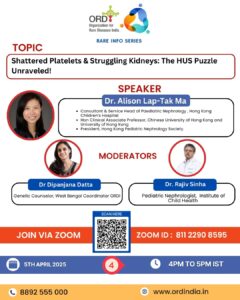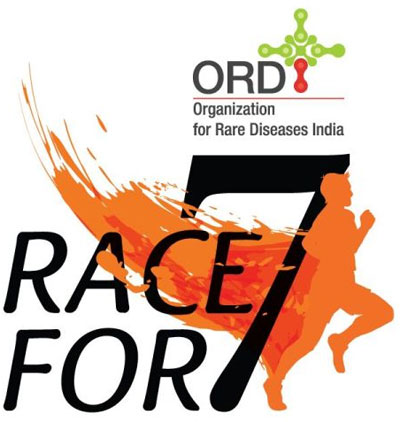Niemann–Pick diseases are a group of inherited, severe metabolic disorders in which sphingomyelin accumulate in lysosomes inside cells. This disease involves dysfunctional metabolism of sphingolipids. The three most commonly recognized forms are Niemann-Pick Types A and B and Type C. Niemann-Pick disease can affect the brain, nerves, liver, spleen, bone marrow and, in severe cases, lungs. People with this condition experience symptoms related to progressive loss of function of nerves, the brain and other organs. Niemann-Pick can occur at any age but mainly affects children. The disease has no known cure and is sometimes fatal. Treatment is focused on helping people live with their symptoms.
Symptoms
Symptoms are related to the organs in which sphingomyelin accumulates.
- Enlargement of the liver and spleen (Hepatosplenomegaly)
- Low levels of platelets in the blood(Thrombocytopenia)
- Unsteady gait
- Slurring of speech (dysarthria)
- Difficulty in swallowing (dysphagia)
- Abnormal posturing of the limbs, trunk, and face (dystonia).
- Voluntary rapid eye movements (supranuclear gaze palsy).
- Gradual loss of intellectual abilities, causing dementia and seizures
Classification & Causes
- Niemann–Pick disease Types A and B: Mutations in the SMPD1 Gene cause Niemann–Pick disease types A and B. They produce a deficiency in the activity of the lysosomal enzyme acid sphingomyelinase, that breaks down the lipid sphingomyelin.
- Niemann–Pick disease Types C: Mutations in NPC1 or NPC2 cause Niemann–Pick disease, type C (NPC), which affects a protein used to transport lipids. Type C is the most common form of the disease includes types C1 (95% of type C) and C2.
- Niemann–Pick disease type D (or Nova Scotia form) is now believed to be the same condition as Niemann–Pick disease type C.
Niemann–Pick disease is inherited in an autosomal recessive pattern, which means both copies of the gene, must be defective to cause the disease. Most often, the parents of a child with an autosomal recessive disorder are carriers: they have one copy of the altered gene, but are not affected because the other copy produces the enzyme. If both parents are carriers, each pregnancy has a 25% chance of producing an affected child.
Treatment & Management
- No specific treatment is known for type A and B, but symptoms are treated.
- Miglustat(Zavesca) had been approved in the European Union for the treatment of progressive neurological manifestations in adult patients and pediatric patients with NPC. The drug is available to patients in the United States on an experimental basis.
- In 2014, Arimoclomol was granted orphan drug designation for the treatment of Niemann-Pick type C.
- Genetic counseling may benefit affected individuals and their families
Resources
- National Niemann Pick Disease Foundation, Inc: https://nnpdf.org/overview/
- Niemann-Pick UK: https://www.npuk.org/niemann-pick-disease/
- National Organization for Rare Diseases: https://rarediseases.org/rare-diseases/niemann-pick-disease-type-c/
- Pulmunary Manifestation
If you know anyone with Niemann–Pick, or if you are a physician interested in collaboration, please get in touch with the ORDI team.
Write to us: contactus@ordindia.in
Rare Disease helpline -+91 8892 555 000
Curated by – Ms Anu Sara Philip





